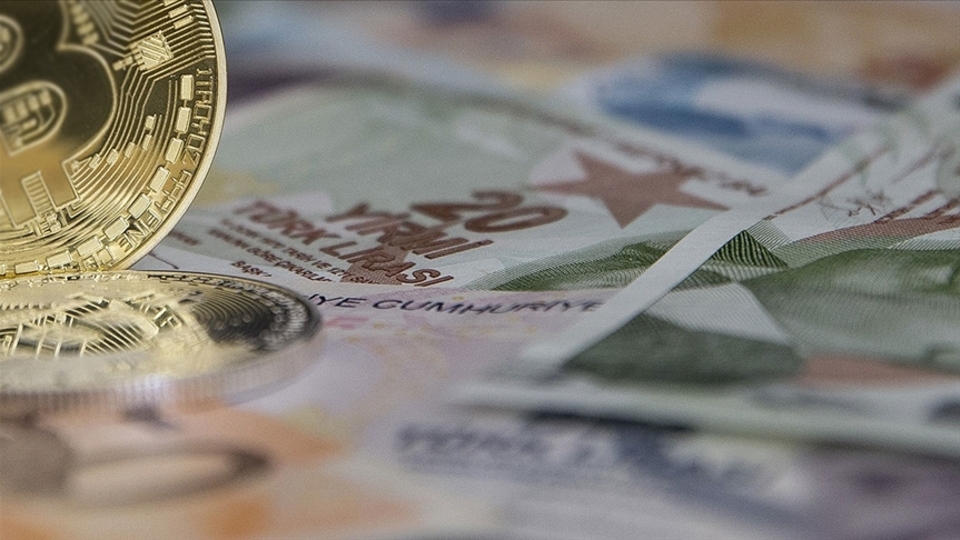📌 What Happened?
There is serious tension in both the political and economic arena following US President Donald Trump's threat to dismiss Fed President Jerome Powell. Trump has long pressured Powell to lower interest rates, but now he has turned those demands into a clear threat. Trump, who hinted in Thursday's statement that the Fed chairman's ouster could be “a matter of time,” signaled a step unprecedented in modern U.S. history.
Powell's ouster means a serious intervention in the Fed's functional independence that it has enjoyed since 1951. While it is common for presidents to have disagreements with the Fed from time to time, such direct intervention is of a magnitude that could shake the institutional foundations of the U.S. financial system.
Many experts who spoke to Decrypt note that if Trump carried out this action, there would be a huge shock in the markets. Traditional assets, especially those seen as safe havens such as bonds and the dollar, are expected to depreciate. However, these developments will also strengthen the value proposition of decentralized, government-controlled assets such as Bitcoin.
Juan Leon, senior investment strategist at Bitwise, emphasizes that such political intervention would shake confidence in the foundation of the American economy, which could trigger a huge wave of selling in the stock and bond markets. According to Leon, such an erosion of trust could make Bitcoin more attractive because investors may turn to the search for alternatives that are free from manipulation.
Matthew Sigel, director of research for digital assets at VanEck, holds a similar view. According to Sigel, Bitcoin's fixed and apolitical monetary policy could become more attractive if markets start pricing in policy changes that can occur every four years under the leadership of the Fed. This, in turn, could increase the adoption of crypto assets in the long run.
But despite all these possibilities, experts also point out short-term risks. In recent years, there have been many instances where Bitcoin and cryptocurrency markets have been directly affected by fluctuations in traditional financial markets. In particular, developments such as US-China trade wars, interest rate decisions and geopolitical risks have also caused huge volatility in crypto markets.
Leon of Bitwise acknowledges that Powell's dismissal could have an immediate negative impact on Bitcoin. He explains the reason for this by the fact that crypto assets tend to move along with stocks in moments of crisis. Yet he argues that such a correlation is not permanent, but rather short-term.
Whether Trump will actually implement the decision remains unclear. A White House official said Friday that the President is actively evaluating the issue. This, in turn, led to a further increase in tension in the markets.
Moreover, Trump and his Republican allies are known to have made various moves over crypto policies in recent times with the aim of breaking the Fed's independence. The steps to be taken in this framework are likely to have not only short-term but also long-term effects.
These developments open the door to new risks and opportunities for both traditional investors and cryptocurrency investors. This process can be decisive, especially for investors who seek diversity in their portfolios and want to be protected from political risks.
📉 Products That May Be Affected
🟢 Positive:
• Bitcoin
• Ethereum
• Cryptocurrency markets
• Gold
• Decentralized finance projects (DeFi)
🔴 Negative:
• U.S. Bonds
• Dollar index (DXY)
• THE S&P 500
• Banking shares
• High interest sensitive sectors
🧠 Expert Review
Trump's Powell move could trigger not just short-term volatility, but long-term crises of corporate confidence. This can lead to severe value losses in traditional asset classes, as well as accelerate investors' shift to alternative assets. In particular, decentralized, fixed-supply and globally accepted assets such as Bitcoin can emerge from this process stronger. But it is critical that investors are prepared for short-term fluctuations, diversify their portfolios and keep risk management at the forefront. Both political uncertainty and economic fragility call for a rethink of strategic investment decisions.
✅ Take Action
This potential break in the traditional system could be an important signal to turn to alternative investments. It is worth keeping a closer eye on assets such as Bitcoin.
Explore relevant analytics
Examine investment opportunities
🛑 Disclaimer
This content is not investment advice. You should make your decisions based on your own research and professional advisors.
trading desk, analysis, stock, stock exchange, balance sheet, crypto, US markets, BIST 100, technology stocks, Trump, Fed, Jerome Powell, Powell firing, central bank independence, Bitcoin price, dollar crisis, bond sale, market uncertainty, financial vulnerability, crypto investment, alternative value store, BTC analysis, gold, Ethereum, VanEck, Bitwise, crypto strategy, fixed supply, decentralized finance, policy risk, economic shock, volatility, market confidence, White House statement, US interest rate policy, dollar collapse, Trump crisis, Bitcoin safe haven, Fed removal threat, crypto hedge, financial chaos, stable policy, decentralized assets, Powell dismissal, bond risk, inflation fear, political volatility, crypto regulation, BTC opportunity, macro instability, decrypt news, alternative asset class
⚖️ Yasal Uyarı:Bu içerik yatırım tavsiyesi niteliği taşımaz. Yatırımlarınızla ilgili kararlarınızı kendi araştırmalarınız ve risk profilinize göre almanız önerilir.




















.png)